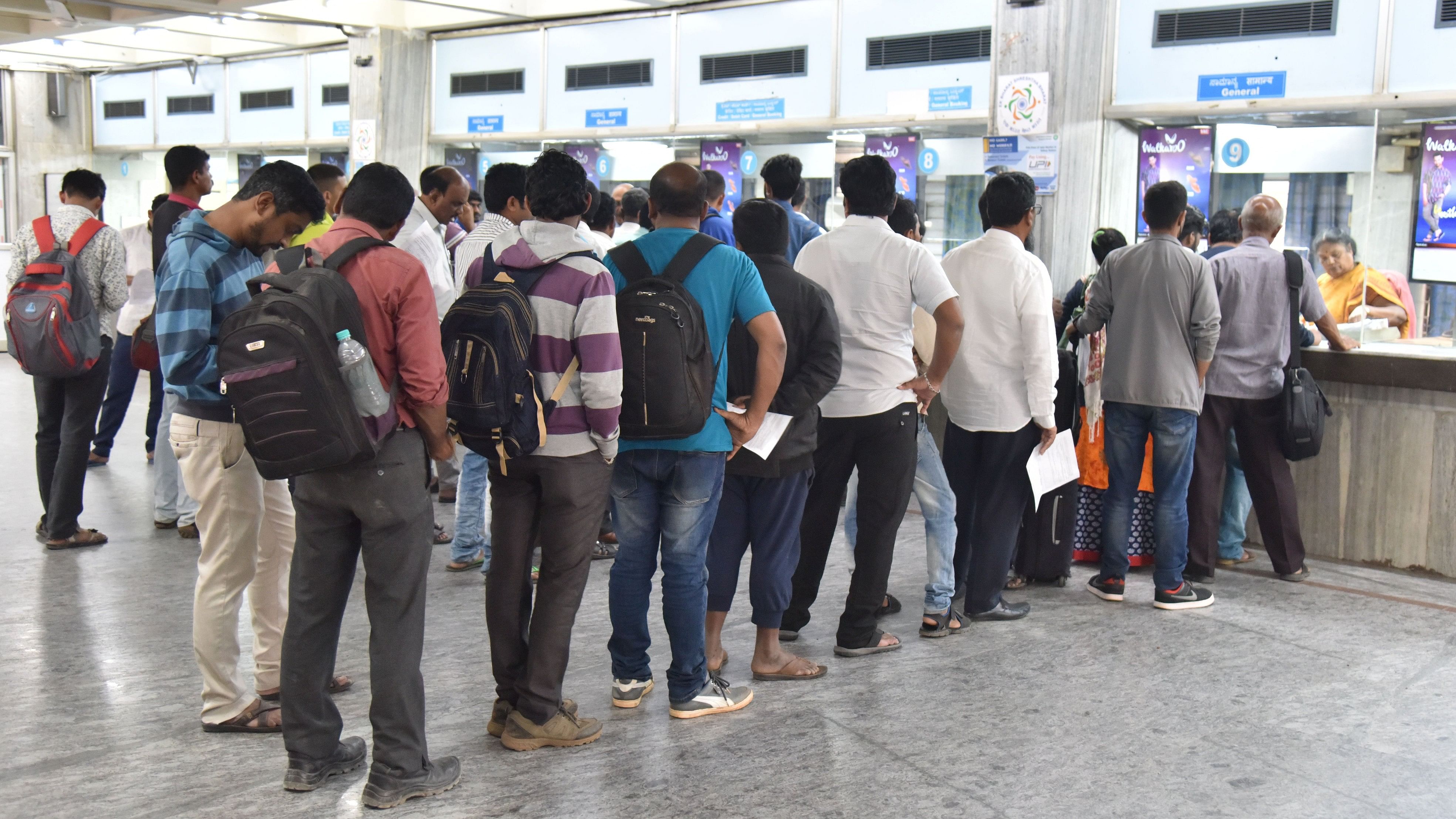
People lined up in front of Railway reservation counter in Bengaluru.
Credit: DH Photo/Janardhan B K
The Reserve Bank of India on Friday announced that licensed bank and non-bank issuers can now issue prepaid payment instruments for transport networks without a mandatory know your customer (KYC) verification. This could be a shot in the arm for the Bangalore Metro Rail Corporation’s plan to phase out the sale of its closed-loop contactless smartcards in favour of the RuPay national common mobility cards (NCMCs).
AGS Transact Technologies, the payment solutions provider tasked with implementation of the NCMC project in Bengaluru, expects the backend process to be ready for roll out of NCMCs without KYC verification by the first week of March, company executive vice president Alok Singh told DH.
The NCMC is an open-loop card, interoperable across different transport networks in the country, in addition to retail outlets that accept RuPay payments.
In light of the apex bank’s latest circular, Singh anticipates an improvement in the adoption of the card to up to 5 lakh by June, 2024. Overall, the company has a target of issuing 25 lakh NCMCs in the next two years.
The national common mobility card, which was launched in the city in late March last year, has since seen approximately 36,000 takers, Singh said. The card has registered lower-than-expected numbers despite several steps taken to propel its adoption. AGS launched an application to help customers complete their KYC process online, reducing the time taken to purchase the card on metro stations. The BMRCL, on the other hand, limited sale of the contactless smartcards to two time slots during the day - 8 am to 11 am and 5 pm to 8 pm, from August 21, 2023.
Currently, not more than 5 NCMCs are sold per day on the MG Road Metro Station, a BMRCL employee told DH. The number hasn’t seen significant change since its launch, the employee added. The Bangalore metro network currently serves around 7 lakh commuters per day across 66 stations.
Others complained about the non-acceptance of the card on city-buses, while many continue to be unaware of the provision. Singh said that AGS plans to partner with entities outside of the transport network after the card’s adoption reaches a certain benchmark, around May-June this year. Those under 35 years of age are expected to be the primary target for the card, he added.